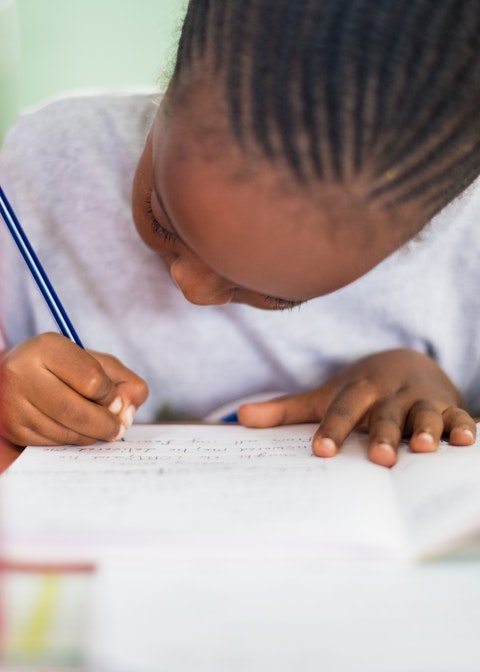Fostering independent learning and study habits in primary school is essential for helping children develop self-discipline, curiosity, and responsibility. By establishing these skills early, you can set your child up for academic success and a lifelong love of learning. As a parent, you play a key role in guiding them toward becoming confident, independent learners. Here are eight practical tips to encourage independent learning and build study habits in your child.
1) Create a Consistent Study Routine
A regular study routine helps children understand that learning is an important, consistent part of their day.
- Set a Regular Study Time: Establish a specific time each day for studying or completing homework, creating structure and reducing procrastination.
- Incorporate Breaks: Short breaks between study sessions prevent burnout. Try the Pomodoro Technique—25 minutes of study followed by a 5-minute break.
- Use a Visual Schedule: A daily or weekly calendar allows your child to track their progress by crossing off completed tasks, reinforcing time management skills.
2) Set Up a Dedicated Study Space
A designated study area helps children focus and associate the space with learning.
- Organize the Space: Keep the area tidy and stocked with essentials like pencils, paper, and textbooks to minimize distractions.
- Limit Distractions: Ensure that toys, gadgets, and excessive noise are kept away. If a computer or tablet is necessary, make sure it’s used strictly for educational purposes during study time.
3) Encourage Responsibility and Ownership of Learning
Helping your child take responsibility for their learning boosts their confidence and sense of independence.
- Involve Them in Planning: Let your child plan their study schedule, choosing which subjects to focus on and in what order. This promotes accountability.
- Set Goals Together: Establish achievable short-term and long-term goals, like completing a project by the end of the week or mastering a math concept.
- Teach Time Management: Help your child break larger tasks into smaller steps and estimate how long each will take, building their time management skills.
4) Encourage Problem-Solving and Critical Thinking
Independent learning is more than completing tasks—it’s about thinking critically and solving problems.
- Ask Open-Ended Questions: When your child encounters a challenge, ask questions like, “What do you think will happen if…?” to encourage critical thinking.
- Promote Exploration: Encourage your child to explore topics they’re curious about through independent research or hands-on activities. This nurtures curiosity and self-driven learning.
- Praise Effort, Not Just Results: Focus on praising the effort they put into solving problems rather than just the final outcome, reinforcing the value of persistence.
5) Use Technology to Support Learning
When used appropriately, technology can be an excellent tool for independent learning.
- Educational Apps: offer interactive lessons that make learning self-paced and engaging.
- Teach Research Skills: Encourage your child to use the internet for researching school projects, helping them evaluate the credibility of sources.
- Set Screen Time Limits: Balance screen-based learning with offline activities like reading or hands-on projects to keep focus and engagement high.
6) Foster a Growth Mindset
A growth mindset teaches children that challenges are opportunities for learning and growth.
- Normalize Mistakes: Remind your child that making mistakes is part of the learning process. Encourage them by saying, “It’s okay if this is hard—you’re learning something new!”
- Model Lifelong Learning: Share your own experiences of learning new things or overcoming challenges, showing them that learning continues beyond school.
- Celebrate Progress: Recognize milestones in their learning journey, whether it’s mastering a skill or developing better time management.
7) Encourage Reflection and Self-Assessment
Self-reflection helps children become aware of their strengths and areas for improvement, fostering independent thinking.
- Ask Reflective Questions: After completing a task, ask questions like, “What did you find easy?” or “What could you do differently next time?” to encourage reflection.
- Track Progress: Help your child maintain a journal or checklist to track goals and accomplishments, boosting their confidence by reviewing progress.
8) Build Confidence Through Encouragement
Confidence is crucial for independent learning. When children believe in themselves, they are more likely to tackle challenges and take initiative.
- Offer Encouragement: Provide positive reinforcement, especially when your child is working through something difficult, helping them build resilience.
- Give Specific Feedback: Praise specific achievements like completing homework on time or mastering a new concept. Positive feedback encourages continued effort.
Summary
Encouraging independent learning and study habits in primary school children is a valuable investment in their academic and personal growth. By creating a consistent routine, fostering responsibility, and promoting critical thinking, you can help your child become a self-motivated learner. Supporting your child’s progress, celebrating their efforts, and nurturing a growth mindset will empower them to take control of their learning journey and thrive throughout their education and beyond.


Add Comment
Upcoming Events